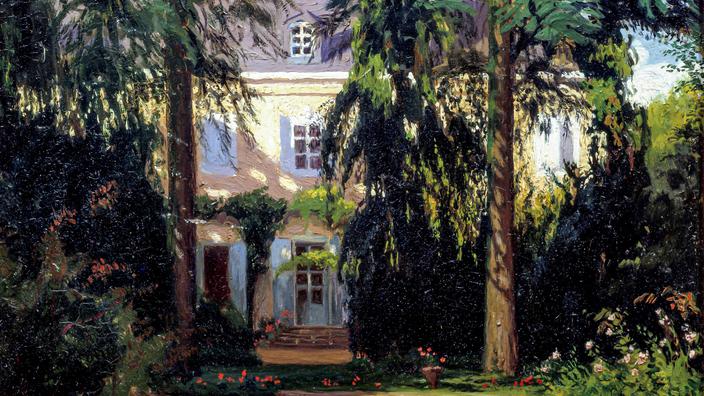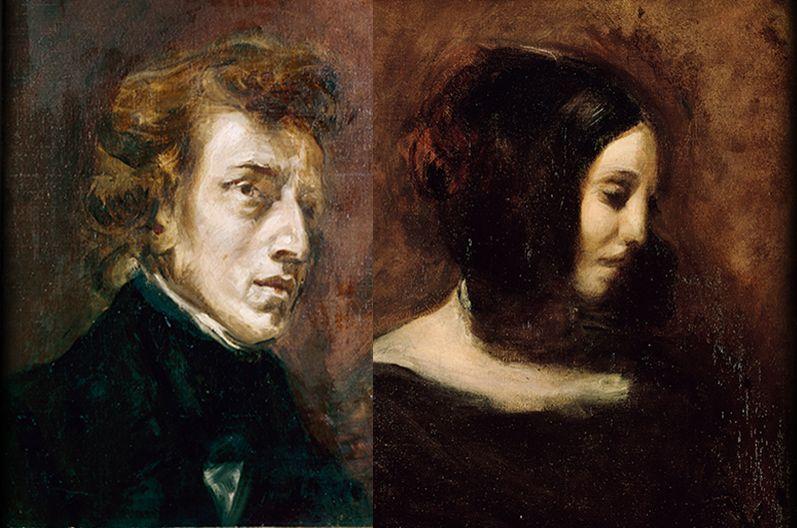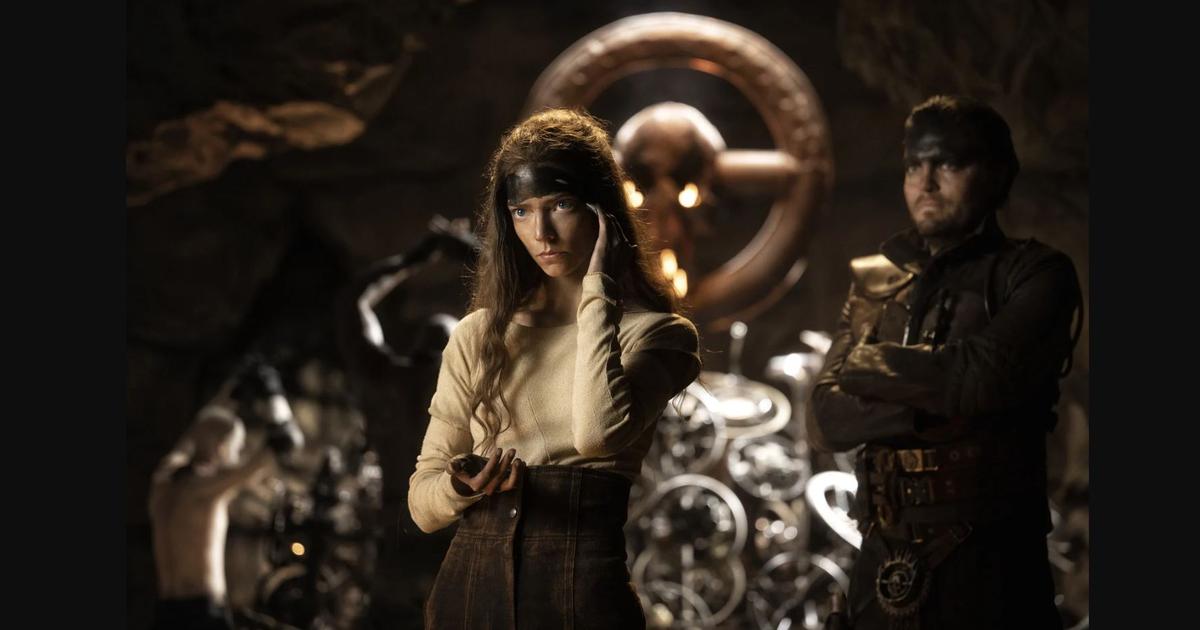Portrait of Signora Morrocchi by Antonio Puccinelli, 1859 AKG Images / De Agostini Picture Lib./G.Nimatallah
December 23, 1869. The death of his friend Louis Bouilhet, with whom he had spent so many Sundays reading and correcting their respective manuscripts, upset Flaubert.
The icy reception which greeted the publication of L'Education sentimentale bruised him.
Having become a very close friend, George Sand has put balm on her wounds by writing a powerful analysis of the criticized novel.
She affirmed that Flaubert had masterfully described a faint-hearted generation that had fallen from romanticism into impotence.
He thanked her warmly.
George, who has since stayed at Croisset three times without being able to convince Gustave to visit him in Berry, insisted that he come to spend Christmas in Nohant.
To read also: Michel De Jaeghere: "Madame Bovary, c'est nous"
This time he accepted.
Because he has a heavy heart.
George is always so caring, so warm.
He goes towards her as towards a fountain of youth.
A friend of the Lady of Nohant, Edmond Plauchut, accompanies him.
He is a journalist and a whimsical person.
On this December 23, they arrive at the stroke of half past five in the evening at the 18th century castle where George spent most of her childhood, and which she inherited upon the death of her grandmother.
The welcome she gives to her “old troubadour” is so tender that Gustave almost instantly regains his gaiety.
Around the family table, we talk, we laugh.
Flaubert is literally seduced by the granddaughters of George, Aurore, nicknamed Lolo, and Gabrielle, known as Titite.
When the children go up to bed, the adults sit in the living room in front of a sizzling wood fire.
And we talk, we talk until more time.
The next day it snows.
The whole household meets at eleven o'clock for lunch.
Gustave gives their New Year's gifts to the little girls.
The day will be spent watching a puppet show in the theater with a large Christmas tree.
Maurice, George's son, organizes a raffle.
Flaubert is having fun like a kid.
New Years Eve will be a true fairyland.
George put together the menu herself.
All the dishes are delicious.
Gustave, who is a gourmet, does them honor while telling stories that make the guests die of laughter.
The next day, Flaubert read Le Château des cœurs, a fairy tale co-written with Louis Bouilhet, which no theater accepts.
He will end up disguising himself as a woman and dancing with Plauchut la cachucha.
Full of tenderness, Flaubert left on December 28.
“Their letters were more and more friendly, tender and fraternal.
When one or the other was in trouble with money, they offered each other financial help.
"
Irina de Chikoff
How happy he was with his friend!
When they met in 1859 - she was fifty-four and he was thirty-seven - Flaubert had some prejudices against his novels, too sentimental for his taste.
Too many too.
She writes fast.
Too fast, he told himself.
And then his "socialist hobby" annoyed him.
Little by little, he got to know her better, especially after the publication of Salammbô.
He was charmed by the article she wrote in a magazine.
They entered into a correspondence.
Their letters were more and more friendly, tender and fraternal.
When one or the other was in trouble with money, they offered each other financial help.
As for her ideas, totally absurd for Flaubert, on the social and political responsibility of the writer, she had cut back.
“I was young too,” she wrote to him, “and prone to indignation.
It's finish !
"
George is still more often, more and longer at Nohant, but sometimes went to Paris where she even participated in Magny dinners.
A touch of misanthropy has erased its oil side.
And then, it grows old, and closes in on its intimate circle, its woods, its rose garden and the Indre where it bathes, just as Gustave often takes a dip in the Seine.
Back home, Flaubert's fine Berry humor quickly waned.
He composed the preface
to Louis Bouilhet's Last Songs
, whom Gustave liked to call Monsignor because he had come one evening in a cassock to a masked ball.
Louis also gave his friend nicknames and called him "Karaphon".
The death of another traveling companion, Jules Duplan, who had so often served as a librarian, has further clouded his mood, while his health deteriorates.
Sales of
Sentimental Education are
stalling.
In Croisset, her mother curls up over her ailments and can barely walk.
In Paris, it's Jules de Goncourt who is now at its worst.
His death occurs on June 20.
Gustave feels “full of coffins, like an old cemetery”.
This article is from the
Figaro Hors-Série:
Flaubert, la fureur d'être
. Discover Flaubert's eventful life, his friendships, his work, his characters, his quest for the perfect style on
Figaro Store
.
Portrait of Signora Morrocchi by Antonio Puccinelli, 1859 AKG Images / De Agostini Picture Lib./G.Nimatallah









